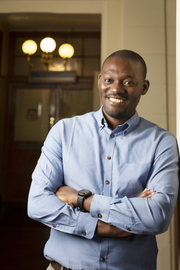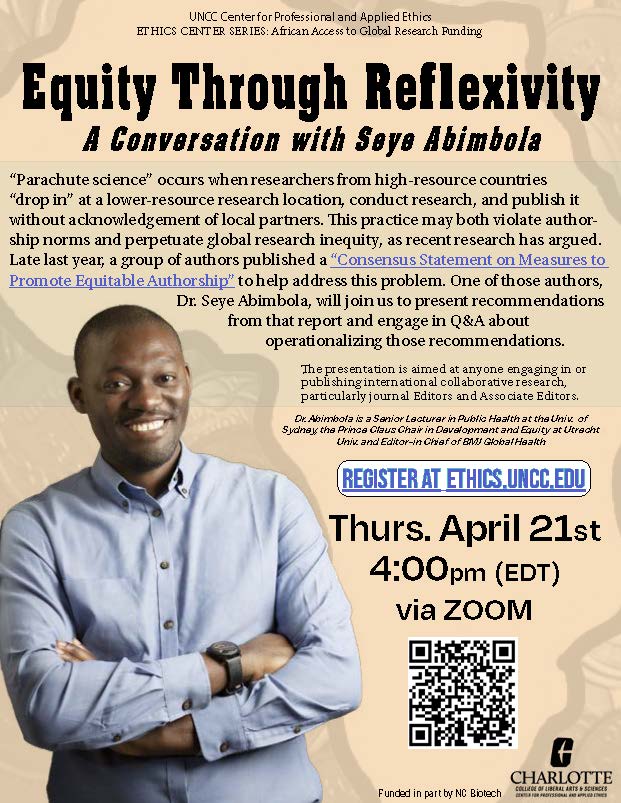
-
Prospective Students
-
Faculty and Staff
-
Current Students
-
Alumni and Friends

April 21, 4:00pm EDT: Equity through Reflexivity: A Conversation with Seye Abimbola (Senior Lecturer, Public Health, Univ. of Sydney, Prince Claus Chair in Development and Equity at Utrecht Univ., Editor-in Chief of BMJ Global Health)
--> Zoom Registration: https://uncc.zoom.us/meeting/register/tJMscOCqrDMpEtUBNOgidoNyuXR3KHbBH0RF
Abstract: "Parachute science" occurs when researchers from high-resource countries "drop in" at a lower-resource research location, conduct research, and publish it without acknowledgement of local partners. This practice may both violate authorship norms and perpetuate global research inequity, as recent research has argued. Late last year, a group of authors published a "Consensus Statement on Measures to Promote Equitable Authorship" to help address this problem. One of those authors, Dr. Seye Abimbola, will join us to present recommendations from that report and engage in Q&A about operationalizing those recommendations.
About the series: As the Covid-19 pandemic has made very clear, the global health system is marked by deep inequities. For example, while over half of eligible adults in the U.S. are fully vaccinated, that number is in the low single digits across most of the global South. These inequities also occur at the level of research. For example, one study found that the percentage of journal articles about trials in low and middle income countries (LMICs) with first authors from those countries declined from 1990-2013. Another found that African authors were underrepresented in research done in Africa; most of those African authors who were represented had an affiliation in an Anglophone country. A third found that 20% of papers about Covid-19 in Africa had no African authors. We propose to explore this disparity in the representation of researchers from LMICs in medical research, both to draw attention to it and to explore its causes and possible solutions. Taking advantage of the affordances of the online format, we hope specifically to include events in which African and other LMIC researchers can speak to the exclusions and disparities they face in their own research. Talks will be archived on the Center's YouTube Channel.
